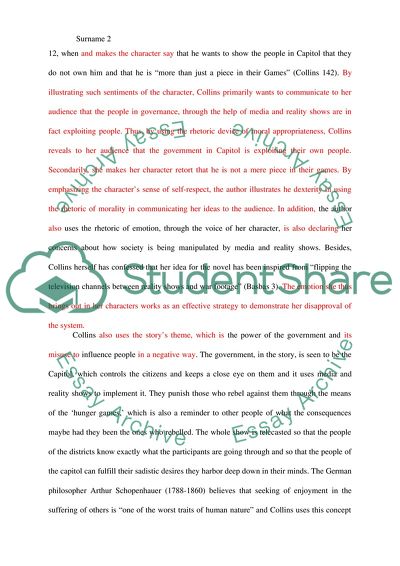Cite this document
(“The reality TV and media in The Hunger Games Essay”, n.d.)
The reality TV and media in The Hunger Games Essay. Retrieved from https://studentshare.org/miscellaneous/1615361-the-reality-tv-and-media-in-the-hunger-games
The reality TV and media in The Hunger Games Essay. Retrieved from https://studentshare.org/miscellaneous/1615361-the-reality-tv-and-media-in-the-hunger-games
(The Reality TV and Media in The Hunger Games Essay)
The Reality TV and Media in The Hunger Games Essay. https://studentshare.org/miscellaneous/1615361-the-reality-tv-and-media-in-the-hunger-games.
The Reality TV and Media in The Hunger Games Essay. https://studentshare.org/miscellaneous/1615361-the-reality-tv-and-media-in-the-hunger-games.
“The Reality TV and Media in The Hunger Games Essay”, n.d. https://studentshare.org/miscellaneous/1615361-the-reality-tv-and-media-in-the-hunger-games.


